No Poverty


Home » Uncategorized » Frequently Asked Question about UN’s Sustainable Development Goal 1
Frequently Asked Question about UN’s Sustainable Development Goal 1
-Social Impact Israel-
SDG 1- What are the main causes of poverty?
Lack of access to education: Education is a key factor in reducing poverty, as it can provide individuals with the skills and knowledge, they need to secure better-paying jobs and improve their quality of life. However, many people living in poverty do not have access to education due to economic, social, or cultural barriers.
Unemployment or low-paying jobs: Lack of access to employment or job opportunities, or working in low-paying jobs, can lead to poverty. This can be due to a lack of education or training, discrimination, or other structural barriers.
Inequality: Inequality, whether economic, social, or political, can contribute to poverty. For example, people who are discriminated against based on their race, gender, ethnicity, or other factors may have fewer opportunities to succeed and may be more likely to live in poverty.
Environmental degradation: Environmental factors, such as natural disasters or environmental degradation, can also contribute to poverty. For example, people who live in areas prone to natural disasters may lose their homes, livelihoods, and access to resources, which can lead to poverty.
Political instability or conflict: Political instability or conflict can also contribute to poverty. For example, people living in areas with ongoing conflict may be displaced from their homes, which can lead to poverty. Similarly, political instability or corruption can prevent people from accessing the resources and opportunities they need to lift themselves out of poverty.
Click on any of the SDG’s icons in this page to learn more, or click here to use the search option or ask us in person.
Related articles


SDG 1- Poverty in Israel on the Downturn…but it’s All Relative
No Poverty The good news is, a report released by the National Insurance Institute revealed an overall reduction in poverty and inequality levels in Israel


SDG 1 – Using Blockchain to Help African Farmers
No Poverty According to the UN, more than 1 billion people have been lifted out of extreme poverty since 1990. But at the global level


SDG 1- Can We Overcome Poverty? An Inside Look Into ‘’Latet’’
No Poverty “You grow up fast when you realise the reason your parents don’t give is not because they don’t love you.” An inside look


















